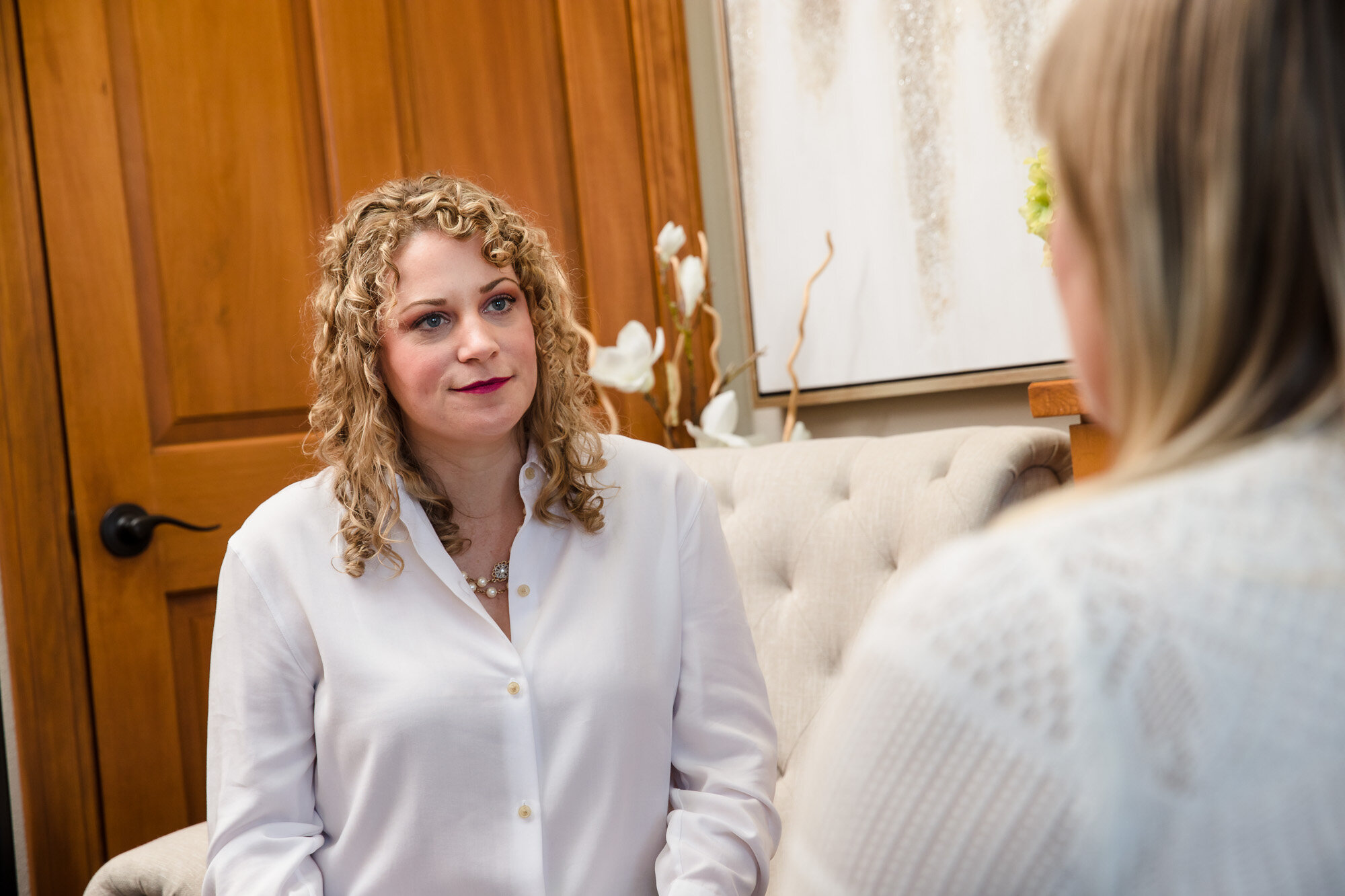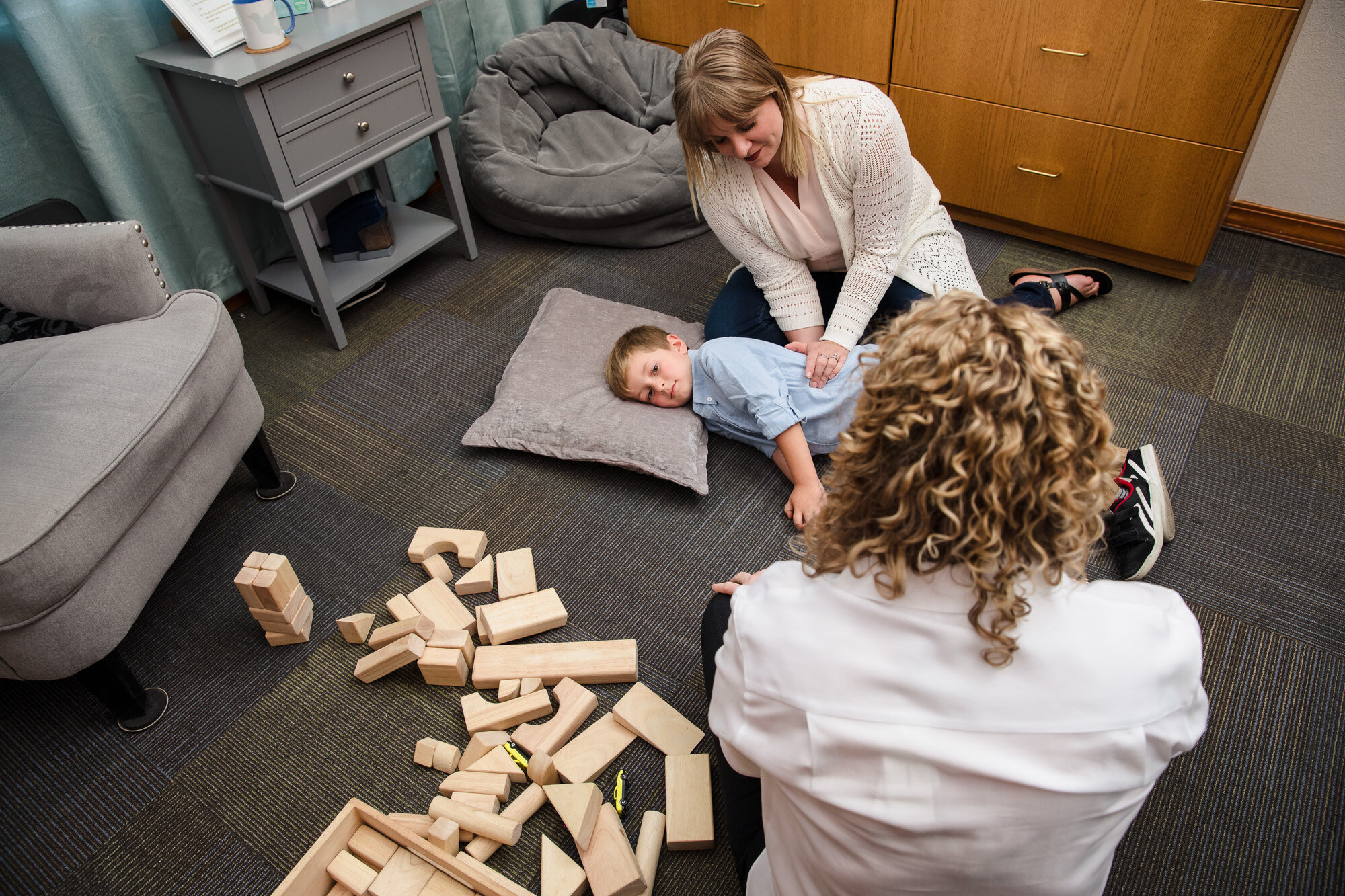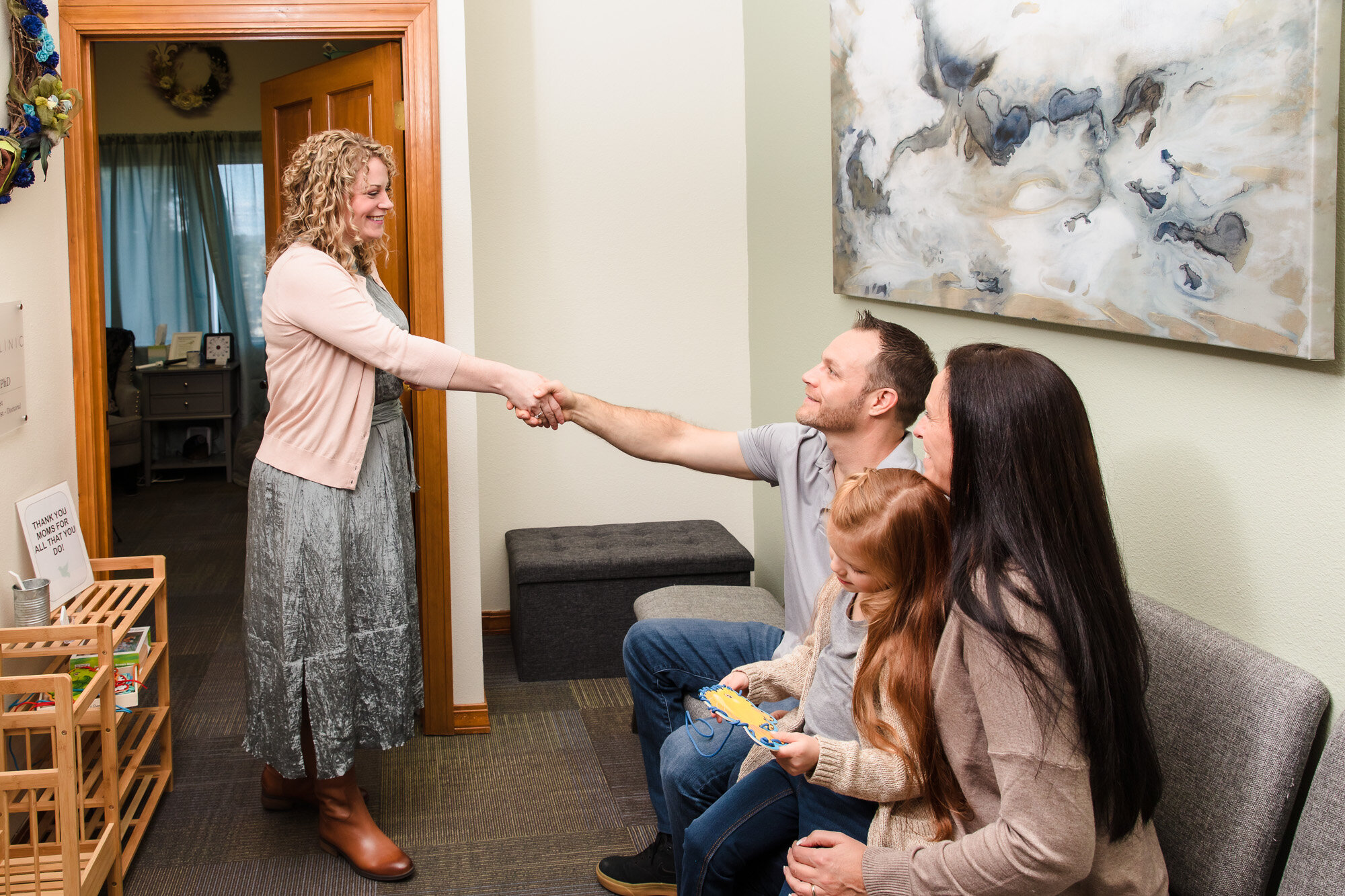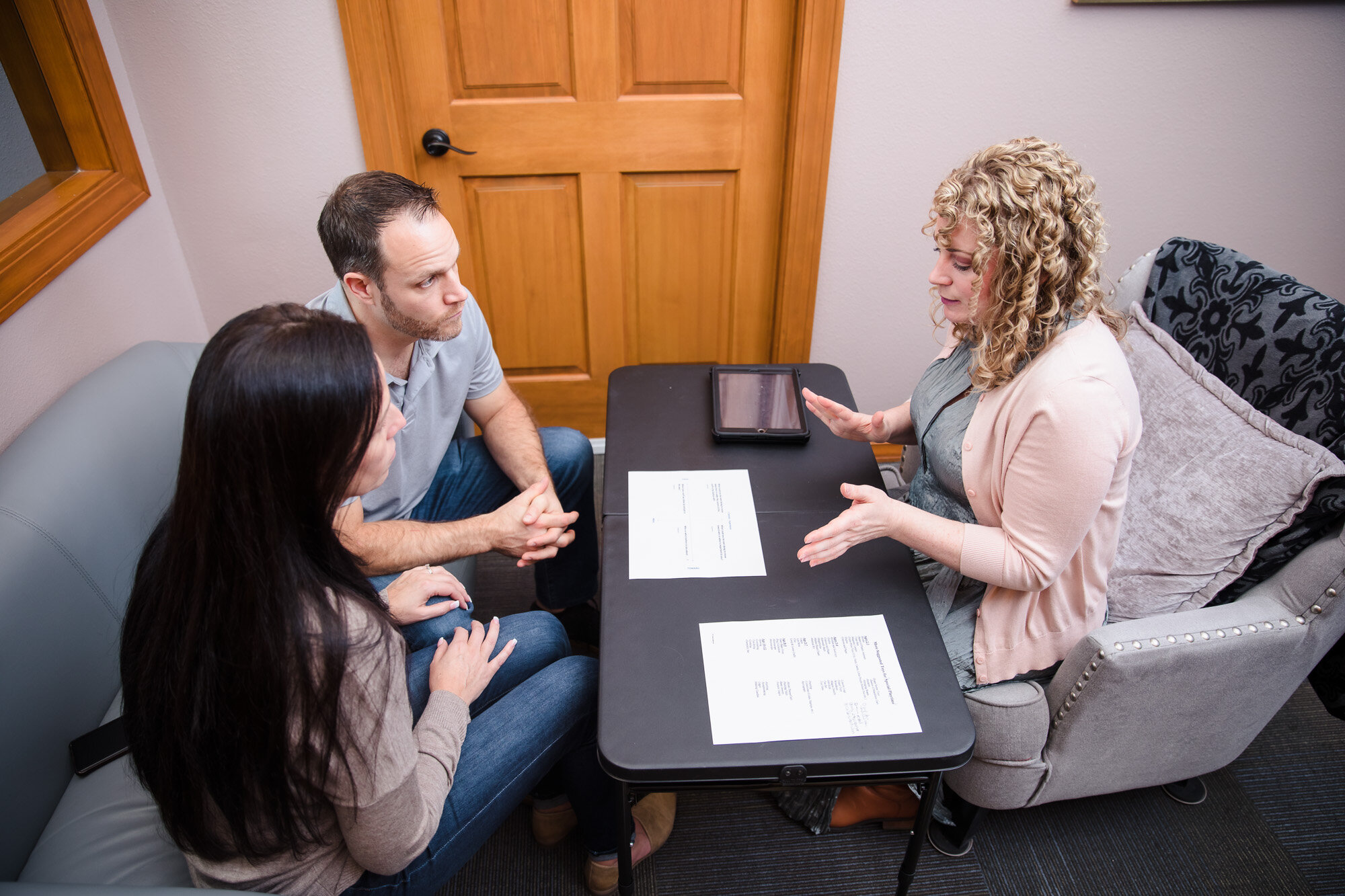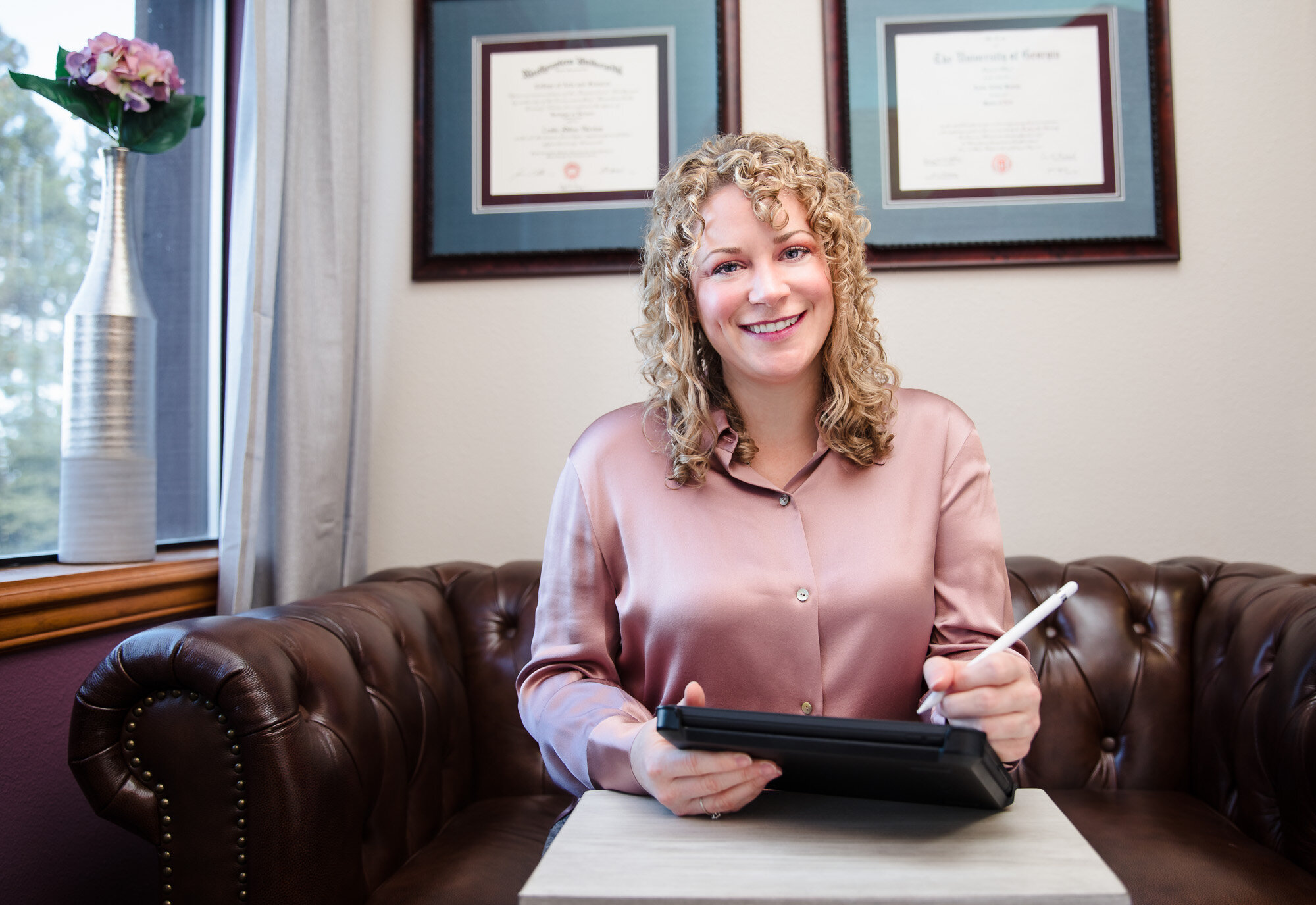Today we are talking about alternative treatments for supporting your child's behavior. Alternative treatments might be things like essential oils, elimination diets, using the moon to decide when you will go out for fun activities versus hunkering down in anticipation of naughty behavior, and other types of old wives tales and Instagram / Pinterest wisdom that is not necessarily linked to evidence-based studies. Many providers, including physicians, psychologists, therapist, and others, get this question all the time. It's a very important question because it frames the way that you as a parent will approach treatment for your child and the energy and attributions you give to interventions along your child's journey.
Read MoreGiftedness and Special Needs
I'm chatting today with a psychologist who specializes in giftedness, Andrea Lein. She and I really nerded out... for a while. We talk about what giftedness is, what twice exceptional is (when a gifted personal has a learning or emotional disability in school), and how parents can approach supporting twice exceptional children. Enjoy!! (I know we did!)
Read MoreFlexible home learning schedule | How to Keep kids engaged
We're taking a break from expert chats today so I can bring you information that I believe is awesome and super helpful to creating a learning-at-home schedule that benefits your child and you.
I'll go into the one big secret that teachers have been doing in Finland's schools for a while now. It helps increase attention and productivity in kids, promotes better mood, and is associated with higher achievement scores and better brain development.
Read MoreTreating Dyslexia | Expert Interview with Casey Harrison from The Dyslexia Classroom
Dyslexia is the topic for this week! This is also known as a Specific Learning Disorder/disability where the deficits are in basic reading skills, namely phonological processing.
Casey Harrison, an expert dyslexia specialist, will go into much greater detail about the ins-and-outs of what this means and other terms you may have heard used with dyslexia. Casey is an internationally sought after dyslexia treatment expert with over 25 years of experience in education.
We discuss what you should look for in a reading specialist if your child needs support and what a good therapeutic reading program entails. We also talk about learning to read more generally, so if your child is a bit younger and you are wondering about the approach to take, this is a great video to watch.
Casey works with children …more
Read MoreWriting IEP Goals that Work
Today I'm continuing my series of expert chats with Brandie Rosen, a 25-year veteran of special education and teacher training. She's worked on over 5,000 IEPs! She shares with us valuable insight into writing good IEP goals.
IEP goals are the meat of any special education child's services. They provide the road map for what the school, his teachers, and the child will be accomplishing as part of the special education programming for the next calendar year. Brandie helps me to understand how this individualized map fits in with the general education curriculum and how it pulls services, like speech and language, to support meeting the IEP goals. We also dive into Brandie's work in training teachers, specifically with addressing anxiety in students. Brandie provides a framework for how she promotes a collaborative, expertise driven working style so that teachers can do their best work with students while students are getting all of their needs met.
Have a great day!
Dr. Blevins
Resources
Brandie's parent website: https://brandierosenconsulting.com/
Brandie's teacher website: http://learn2teachwithbrandie.com/
Here is a link to Brandie's resource page for parents; lots of good IEP content! :) https://brandierosenconsulting.com/faq-and-resources/
Read MoreFunding College: Info for special needs and traditional students
Dr. Blevins chats with Katrina Roy and Peter Tassoni, both employed with the state of Washington, about considerations for college financial planning. Planning for both special needs and typically developing children are covered.
Download the presentation here: https://teachdirections.enildaclinic.com/funding-college
Questions covered include:
1. What might be additional factors to consider, financial opportunities, or hurdles to overcome when planning for college if a child has special needs?
2. What if your child is considered disabled and won’t get a traditional college credential. Is funding available for them?
3. For typically developing kids, what’s the ideal planning path?
4. For typically developing kids, if I haven’t planned and my kid is now in high school, what should I be doing to best prepare for a good financial situation with them in college?
5. What is my child’s responsibility (at various ages) that I can encourage them to do to contribute to their college financial health?
Read MoreChildren's Language: An Overview of IQ and Adaptive Skills
Today's video hits on a common theme of concerns I get from parents of young children: language.
Young children can have problem behavior for a variety of reasons, but a common one is poor language development. It is always something I assess when I have a child (of any age) come in for evaluation.
The reason is that poor language skills lead kids to
1) misunderstand what has happened (leading to perceptions of lying),
2) misunderstand what they're told to do (leading to poor compliance),
3) poor articulation (leading to frustration and acting out), and
4) poor expressive productivity (leading to lower self-advocacy skills). These are just a few of the ways language can impact a child.
Every child is unique, and a comprehensive evaluation that includes your child's pediatrician's input and a speech-language pathologist's assessment is the best course to figure out what's going on and how to support your little one.
While language may be one root cause of behavior problems, it is one of many treatment approaches. We can provide interventions beyond increasing language. Other goals include emotion regulation, recognizing cues that signal the child's own needs, and changing stressful environmental situations to be more developmentally helpful.
Warm regards,
Dr. Blevins
A Traditional Home School Mom’s Perspective and Tips
Dr. Blevins interviews her good friend, Stephanie, a veteran home school mom of four children from kindergarten through high school. Stephanie has been home schooling for 12 years and currently has two elementary students, a middle schooler, and a high schooler. She discusses what her home school routine looks like normally, how it has changed due to the pandemic, and behavior strategies she uses to increase child motivation, to get her own work done, and to support working with multiple children at once. Most importantly Stephanie and Dr. Blevins discuss the value of parents participating in the education process and the silver lining and mindset shift that parents may want to embrace during the pandemic to emphasize child resiliency, emotional coping, and mental flexibility.
Read MoreParents are Building Children’s Literacy Skills at Home with Activities They Already Do
Parents can extend their normal, everyday interactions with their children to be educational. This video discusses reading and how parents can engage in reading with their younger child and participating in dialogue with children of all ages to increase reading skills. Basic reading accuracy and fluency, comprehension, and building interest in reading are discussed. This is a functional academic skill that parents might easily adapt to home school situations to meet their children’s literacy needs.
Read MoreFunctional Academics During Isolation: Reduce Stress
Functional academics are the basic life skills that academic learning helps us to do competently. This gets right to the point of academics. It's where the classroom meets real life. Does your child understand why and how they might use academics in real life? Homeschooling can be fun because you can focus on exploring more rather than rote practice. Maybe you do some FUN activities at home to demonstrate the usefulness of academics (while getting them to do a little reading or math). This includes cooking, grocery shopping, fixing things around the house, getting dressed, learning routines, etc. These types of activities build math skills, reading, organization, memory, and social skills. You can go to previous Enilda Clinic videos about praise to learn more about how to really target these skills when you're doing functional academics. Be creative and take pressure off yourself and your child to sit for hours doing school work by focusing on the functional parts of academics.
Read MoreYour Golden Opportunity as a Crisis-Homeschool Parent
Dr. Blevins describes the hidden opportunity parents have as they are taking on instruction roles during isolation. Specifically parents have a first-observer role watching their children learn. This allows them to see how their children learn best and what doesn’t work to support them best. If your child is in regular or special education, this type of information will be valuable for advocating for your child next school year with his or her teacher. You have the opportunity to collect data to support your child’s teacher in making evidence-based decisions. Additionally you have the opportunity to try out new strategies that typically aren’t used in the classroom. Be sure to keep notes, or data, about what you’re observing so that you can support your child and their teacher next school year.
Read MoreGetting Less Preferred Tasks Done | Academic Organization Strategy
In this learning video, Dr. Blevins discusses how parents can support their learners to complete less preferred or more difficult tasks easier by arranging them to occur just before tasks the learner is likely to complete. Do Harder/Less Preferred Tasks, then do easier/More Preferred Tasks. A big take away of this video is that during this difficult time, parents should give themselves self-compassion with creating an academic schedule that works for their family. Not everyone will be able to do what their schools asks of them, and that's okay. Find what works for you and your child. Hopefully small organizational and prevention strategies will help you all to get through this trying time easier. Squirrel Cat is heard in the video hunting for treats in her puzzle box.
Read MoreGrowing as a Parent Advocate for Your Child
When a child is diagnosed with a developmental or mental health disorder, many parents start their own journey of becoming a new, tougher parent. It involves grief, self-compassion, finding your tribe and your voice, and becoming your child's advocate. I'm chatting today with my friend Amanda who is a mother of two children on the Autism spectrum. She eloquently shares her journey from novice to pro in developing her advocacy skills for her children in the school system. I know from working with families that Amanda's journey will parallel many other's paths. Her lessons learned may be helpful to some as they are sorting out skills they need or finding courage to be bold.
A few tidbits from this video:
1. The arc of Amanda's path was to first find her voice, then learn her legal rights as well as her child's legal rights, and now she is currently working on supporting her opinion with data when she talks with the school. 2. She uses targeted parent support groups online to find her tribe where she feels heard and can gain new ideas to help her children. She identifies this as her most valuable resource in supporting her children. 3. She discusses the signs of autism she saw in her own children in early infancy and childhood. 4. She discusses how she had to push to get an evaluation for her first child when no one else shared her concerns, and how this experience made her feel and led to a delay in diagnosis. 5. She shares how she learned about Washington state law to empower herself to share her opinion with her children's schools. 6. She shares how she pushes now for the school to collect data to support continued interventions in her child's ASD areas of concerns, like elopement and anxiety, and how she helps them to identify appropriate interventions based on the data.
Read MoreGiftedness and Specific Learning Disability... Can a kid have both?
Can you be gifted and have a specific learning disorder, like dyslexia or dyscalculia, or even ADHD? Sure can! This is often called "Twice Exceptional." The symptoms look different for children who are gifted, and parents and teachers will still want to identify and support these children. You can reduce imbalanced school-life activity, inefficient work and study habits, and promote positive self-esteem by helping gifted children to understand how to self-advocate and to show themselves compassion.
Read MorePreventing Tantrums
I'm discussing the prevention of tantrums in young kids thru the use of language building. I'll specifically hit on Functional Communication Training, or teaching your child to use language to get their needs met instead of using the tantrum behavior. This is a preventive strategy designed to help the kid see language as an easier and more effective means to getting what they want than tantruming.
Remember that all Enilda Clinic learning videos are just for educational purposes. If you have a specific concern, ask your child's pediatrician about how to proceed or seek specialized support by establishing services with a specialized provider. Enilda Clinic is home to Dr. Leslie Blevins, a licensed psychologist and BCBA-D in Spokane Wa serving children and parents. Learn more at EnildaClinic.com or call at 509-844-0002. We're located at 705 W 7th Ave, Ste D, Spokane, WA 99204.
Read MoreParenting and Video Games
I chat with many parents who are concerned about their child's use of video games. In today's learning video I discuss what signs to look out for that may indicate you want to change things up at home related to video games, a framework for thinking about video games in the context of other life activities, and whether video games can be thought of as addictive.
Read MoreWhat is Educational Therapy?
Dr. Blevins is discussing educational therapy. Specifically she focuses on ed therapy to help with executive dysfunction, or managing time, space, and mental resources to be successful in academics. She talks about how this can help your child love learning again, build and keep your relationship with them strong, and help them to be more efficient so they can live life.
Read MoreSpelling Intervention Review: Cover Copy Compare
Dr. Blevins shows you how to help your child with spelling words by using the intervention Cover-Copy-Compare. Dr. Blevins does therapy with young children and provides psychological and neuropsychological assessments for children through young adults (ages 2 to 22 years old).
Read MoreReading Tutorial Book Review: Teach Your Child to Read in 100 Easy Lessons
Dr. Blevins reviews the book Teach Your Child to Read in 100 Easy Lessons, which has good research evidence for helping children to learn to read. Learn more about Dr. Blevins child therapy, assessment, behavior, and parent support services at EnildaClinic.com.
Read More
